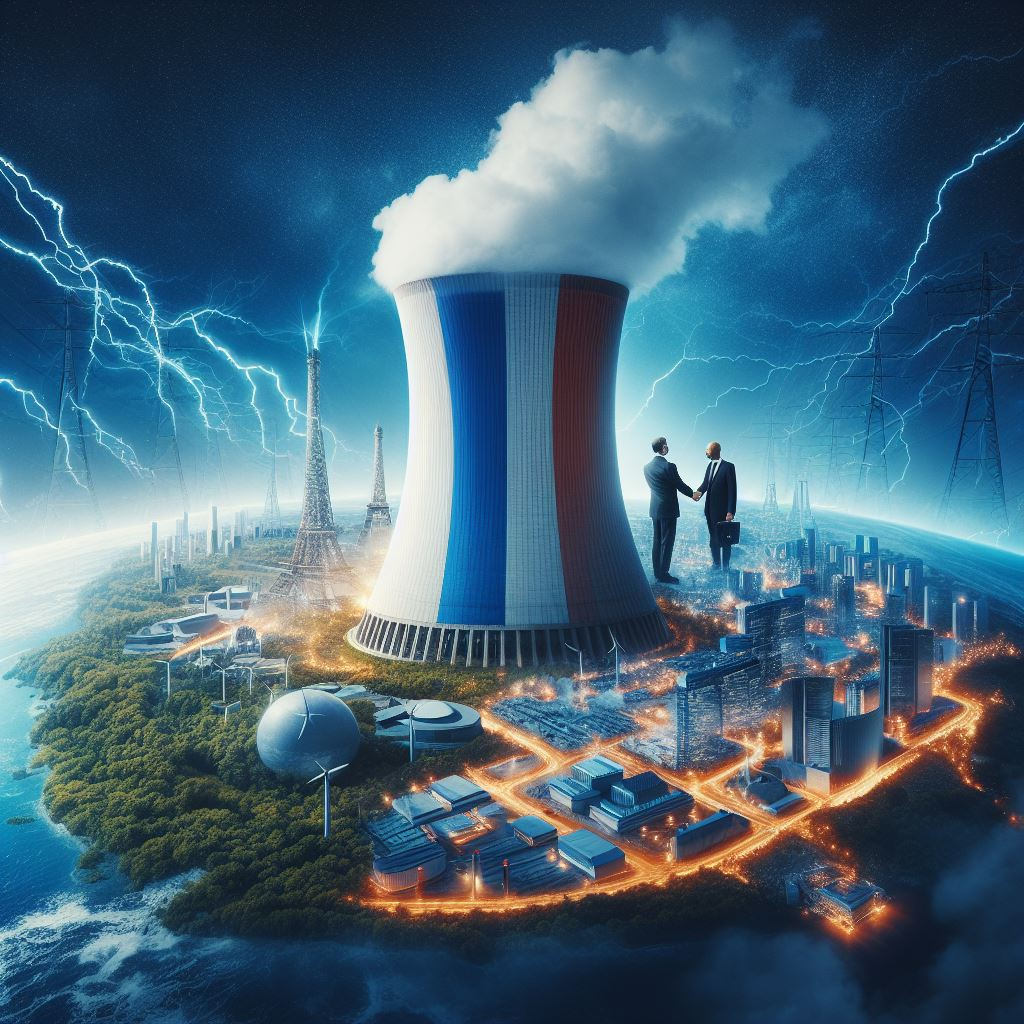France has unveiled plans to construct eight new nuclear plants and the six European Pressurised Reactors (EPRs).

In a significant move to bolster its commitment to carbon reduction targets, France has unveiled plans to construct eight new nuclear plants in addition to the six European Pressurised Reactors (EPRs) announced by President Emmanuel Macron in 2022. Agnes Pannier-Runacher, the energy minister, emphasized the necessity of expanding nuclear power to meet the country’s ambitious climate goals.
The upcoming draft law, set to be presented soon, recognizes the imperative of nuclear energy beyond the initially announced six EPRs. Pannier-Runacher revealed to Tribune Dimanche that the bill will formalize the inclusion of the eight additional nuclear plants, which were previously considered as options by the government.
Contrary to expectations, the legislation will not specify renewable energy targets for 2030. Pannier-Runacher clarified that the bill aims to remain “technologically neutral,” leaving room for flexibility in the choice of energy sources. France currently ranks among the lower greenhouse gas emitters in the European Union, with approximately 4.7 tonnes per capita in 2020, according to Climate Watch data.
The motivation behind this ambitious nuclear expansion lies in France’s commitment to reducing the share of fossil fuels in its energy mix from over 60 percent to 40 percent by 2035.
To achieve this goal, Pannier-Runacher highlighted the need for additional construction equivalent to 13 gigawatts of energy from 2026 onward. This aligns with the power output of eight EPR reactors, although the minister emphasized that the bill does not fixate on any particular technology.
Pannier-Runacher acknowledged the finite lifespan of France’s existing nuclear fleet, consisting of 57 reactors built from the 1970s. Some of these reactors have undergone extensive and costly repairs in recent years, prompting the need for a strategic plan to secure the country’s energy future.
While the draft legislation currently outlines the construction of eight additional nuclear plants, Pannier-Runacher hinted at the possibility of further discussions with lawmakers to potentially increase the number of reactors. The energy bill is poised to be a critical step in shaping France’s long-term energy strategy.
The state energy firm EDF’s next-generation EPR, which has faced challenges in its initial phases, is a central component of France’s nuclear expansion plan. Despite setbacks, three EPRs are already operational—one in Finland and two in China—after overcoming construction delays and cost overruns.
The first EPR in France, located in Flamanville, Normandy, is scheduled to undergo testing in mid-2024, marking a milestone in a project that began 17 years ago and incurred a cost of $13.9 billion, approximately four times the initial budget.
France’s climate strategy includes nuclear energy as a key component, demonstrating its commitment to transitioning away from fossil fuels and achieving a sustainable, low-carbon future. The country has set ambitious carbon reduction targets to further mitigate climate change. As the energy bill progresses, discussions on nuclear expansion and France’s energy landscape are expected to align with broader carbon emission reduction goals.